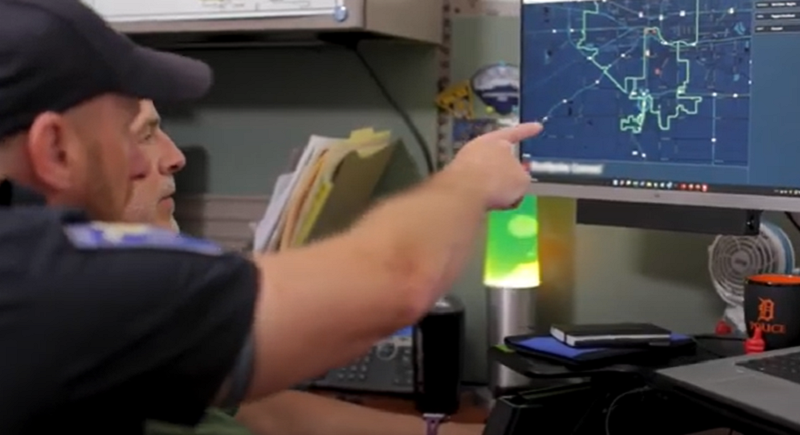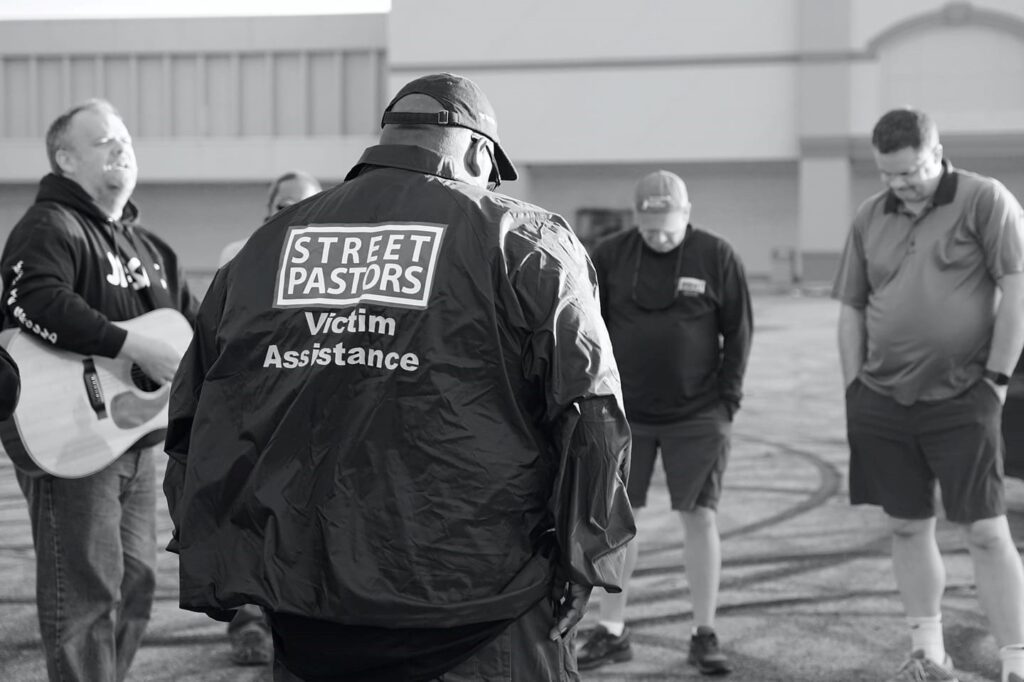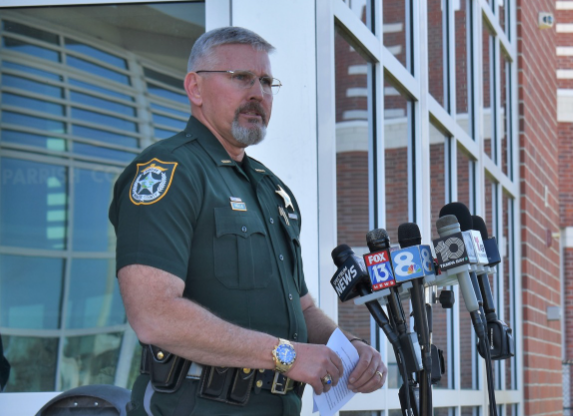
Jurisdictions notorious for gun violence may have ShotSpotter technology implemented to aid law enforcement responses, chronicle firearm discharges, and generate crime data to bolster deployment of dwindled police resources, but some communities are still lukewarm on the use of the alert systems, citing privacy concerns.
Speaking of lukewarm, a new study conducted by the Journal of the American Medical Association (JAMA) cites hotter temperatures as a contributing factor in the increase of gun violence. With that perspective, cops in the Sunshine State may experience a spike in “gun runs.”
Let’s look at ShotSpotter technology…
Per Global News, “The new audio recording technology […] is a system that is already in use by more than 90 cities in the U.S, including Louisville, Cincinnati, and Chicago” and “uses microphones [often installed on public utility poles] to detect and locate gunfire, and automatically inform police” of precise locations.
According to SoundThinking, Inc., the tech maker’s rebrand name, ShotSpotter’s inherent benefits are gunshot detection, resource deployment, crime analysis/data, and investigation management.
Per a SoundThinking spokesperson, “Criminals are evolving, so we have to evolve too. Be proactive against gun violence with ShotSpotter. It’s like a digitized 911 call for gunshots that is faster and more accurate than our 50+-year-old emergency call systemto make sure your agency knows about all gunfire and can respond immediately to help save a life.”
Who can deny that law enforcement has had it rough lately…and could use all the help publicly and privately offered?
In the words of Ralph Clark, SoundThinking president and CEO, “In a time in which police work has never been more challenging, we offer a way forward – technology and guidance to help save lives, solve more crimes, and restore trust with the community.”
From what I read, police executives across America advocate this public safety-oriented technology. What crime-fighting entity wouldn’t want to employ all viable resources to bolster public safety?
Search “ShotSpotter” in Google and you will see a bevy of law enforcement figures touting the use of the technology and sharing respective success stories after implementing it, along with Cleveland, Ohio expanding their network of ShotSpotter devices.
And sometimes, public safety technology extends beyond what law enforcement expects of it…
I came across a nugget involving a Chicago-based “street pastor” named Donovan Price who also relies on ShotSpotter. His role is to immediately respond to locations where the device detects gunshots, and his primary purpose providing victims advocacy—an example of the “resource deployment” mentioned above.

(Photo courtesy of Pastor Donovan Price, Solutions and Resources/Street Pastors.)
Sounds like ShotSpotter helps Pastor Price “know how to deploy, where to deploy, and when to deploy victim services resources,” all possible by liaising with police personnel who receive the gunfire notifications and reach out to community supports such as Pastor Price.
I searched SoundThinking, Inc.’s website and saw a recent press release announcing more than $8 million in sales to various police agencies around the country.
That brings us back to the Manatee County Sheriff’s Office and their quest to join the list of law enforcement agencies using ShotSpotter, realizing successes.
In Manatee County, Florida, some county commissioners are on the fence about the sheriff’s office employing ShotSpotter in the community.
On May 10, 2023, the Sarasota Herald-Tribune reported how commissioners and Manatee County Sheriff Charlie Wells “sparred over the use of ShotSpotter technology meant to help the Manatee County Sheriff’s office respond to drive-by shootings in high-crime areas.”
Sheriff Wells rendered a reality-based point backed by police experience, arguing that “less than 12% of drive-by shootings are even placed into the 911 dispatch [system]…we don’t get the call until the next morning a lot of times. That’s when people realize that their property has been shot up. They don’t call us until they realize, ‘Hey, I wasn’t the subject of the drive-by but my window’s out, I’ve got bullet holes in my vehicle.’ They don’t know that until the next day.”

(Sheriff Charlie Wells. Photo courtesy of the Manatee County Sheriff’s Office.)
I have seen a consensus among police administrators stating that “80% of shootings are never called in” to police. SoundThinking has commentary, charts, and data supporting this factor.
Whether it involves bullets flying while asleep or other types of criminal activities, many people discover nighttime nefariousness after they awaken to start the new day. This was common when I was a midnight-shift cop, going off-duty right after a new day dawned, hearing the police radio abuzz with public safety dispatchers assigning day-shift officers to calls made by citizens who just woke up and realized they were victimized to some degree.
This cycle made me reminisce about when I patrolled the particular zones in which morning risers alerted the police department to criminal activities. As the stereotype goes (and still applies, especially nowadays with fewer cops out there), LEOs can’t be everywhere at once. And that underscores the technological advancements of ShotSpotter to help combat crime involving firearms by deploying cops to precise locations.
The Sarasota Herald-Tribune reporter wrote, County Commission “Chairman Kevin Van Ostenbridge (R) and Commissioner Amanda Ballard (R) raised privacy concerns and questioned whether placing such technology at strategic points in the community could be a step too far.”
“I just want to make sure we are not infringing on people’s rights in any way, shape, or form, but I also want to make sure that we are keeping people safe, and I understand you are targeting neighborhoods where people are not safe,” is what Commissioner Ostenbridge conveyed to Sheriff Wells.
He added: “I strongly believe that the power of the authority and the reach of the government should always be restricted.”
Sheriff Wells had an immediate retort to any suggestion of law enforcement encroaching on citizens’ privacy:
“They’re not going to be recording people in their backyard talking. It’ll be just that small window. We may hear the bad guys as they’re shooting,” Wells said. “We may hear victims running for their lives, but we’re not going to be recording citizens throughout the community. The gunfire starts the recording.”
The technology the sheriff is requesting is to combat gun violence and help nab the perpetrators. Not having ShotSpotter to enable cops a better grip on things seems more like underachieving than overreaching.
“My hope will be that these criminals realize we have this [detection] technology and they stop. I’m just trying to keep people from shooting into other people’s homes,” Sheriff Wells intimated.
With the proliferation of active shooters and such, one might consider this technology is at least a step in the right direction.
On April 27, 2023, the New Haven Police Department went full bore “after more than a dozen gunshots were fired near a local elementary school’s playground.” The full-scale response was launched when “the city’s ShotSpotter system registered gunfire near the John C. Daniels School on Congress Avenue.”
So much noise surrounding the ongoing gun-control debates and anti-Second Amendment voices, you’d think any apparatus to help law enforcement officers get a better beat on gun-related violence would have more advocacy, especially after various accounts dispel “eavesdropping” insinuations.
Florida is pretty pro-police and demonstrates its support of cops by allocating robust funding toward law enforcement initiatives and the brave men and women who strive for public safety/security. But that is at the state level. Perhaps Manatee County’s Board of Commissioners’ concerns about privacy can be settled by the myriad field deployments of thousands of police entities across America and other nations.
In 2018, our Canadian neighbors were petitioning their government leaders for ShotSpotter funds. Then, like with the Manatee County commissioners’ privacy concerns referenced above, oppositionists were salty over whether the equipment would pick up citizens’ conversations, not only gunshots.
Reporter Jessica Patton wrote how a “privacy commissioner” sized up and rated the ShotSpotter:
“It says that it only picks up the acoustic sounds associated with gunshots, ‘bang,’ etc., and if that’s the case if it’s that narrow and it’s restricted only to picking up gunshots sounds…this is what I would like to clarify—I want to make sure that no conversations are picked up,” said privacy guru Ann Cavoukian, adding, “The point is to not eavesdrop on people, it’s to pick up and detect gunshots.”
Perhaps the Manatee County commissioners and other governments harboring concerns over ShotSpotter and privacy rights can glean this, allay any ambivalence, approve/acquire the tech, and realize the successes other police agencies have had in their respective jurisdictions.
Incidentally, the Bradenton Herald reported that no taxpayer dollars were even necessary for Sheriff Wells to implement gunshot-detection technology: “The money to pay for the devices will come from the sheriff’s office’s forfeiture seizure funds, which come from monetary assets that deputies impound during arrests.” (Most of those are drug dealers’ possessions used in the commission of crimes involving peddling dope, wads of dirty money, and vehicles used for the narcotic-trafficking enterprise.)